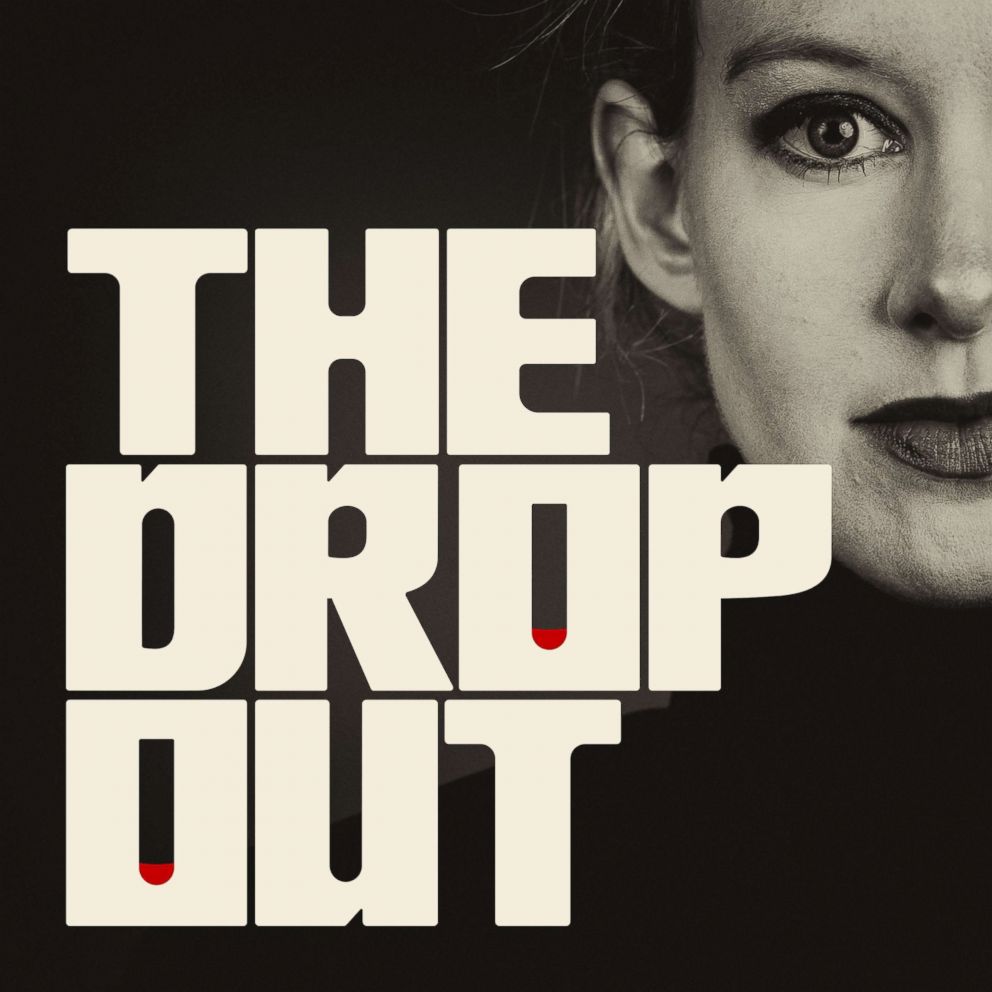Theranos whistleblowers filed complaints out of fear of patients' health: 'It started to eat me up inside': 'The Dropout' episode 4
This is episode 4 of "The Dropout," a podcast about the fall of Theranos.
Watch the two-hour documentary, "The Dropout," THIS FRIDAY, March 15, 2019, at 9 p.m. on ABC.
This is episode 4 of "The Dropout," a six-episode ABC Radio podcast about the fall of Elizabeth Holmes' startup Theranos. If you haven't listened to episode 1, episode 2 and episode 3, we advise that you do so first.
Erika Cheung was a senior in college attending the University of California, Berkeley when she first heard about a company called Theranos.
"I was probably the first person really to drink the Kool-Aid," Cheung told ABC News' Rebecca Jarvis for "The Dropout" podcast.
She was nearing graduation, with a degree in molecular and cell biology, and attended a career fair on campus.
"There was this long line for this company and I skimmed through there," Cheung said. "There was this girl furiously trying to manage all the different candidates that were going to the booth, and I struck up a conversation with her, not knowing anything about it and I really hit it off with the HR recruiter."
Cheung gave the recruiter her resume and said she got an interview almost immediately.
"The initial interview was a phone screening and I think it went really good," she said. "It was exciting to talk with people about kind of how you can apply the sciences ... it was changing the world but not only that making health care more accessible, making it more affordable and doing something that no one had ever done before."
Even though Cheung had two other offers, she chose Theranos. She said she really admired founder and then-CEO Elizabeth Holmes and the company's mission.
"I read all the articles about Elizabeth Holmes and was completely infatuated about this amazing female entrepreneur who dropped out of Stanford and started her own company so it felt like a good company to work for straight out of university," Cheung said.
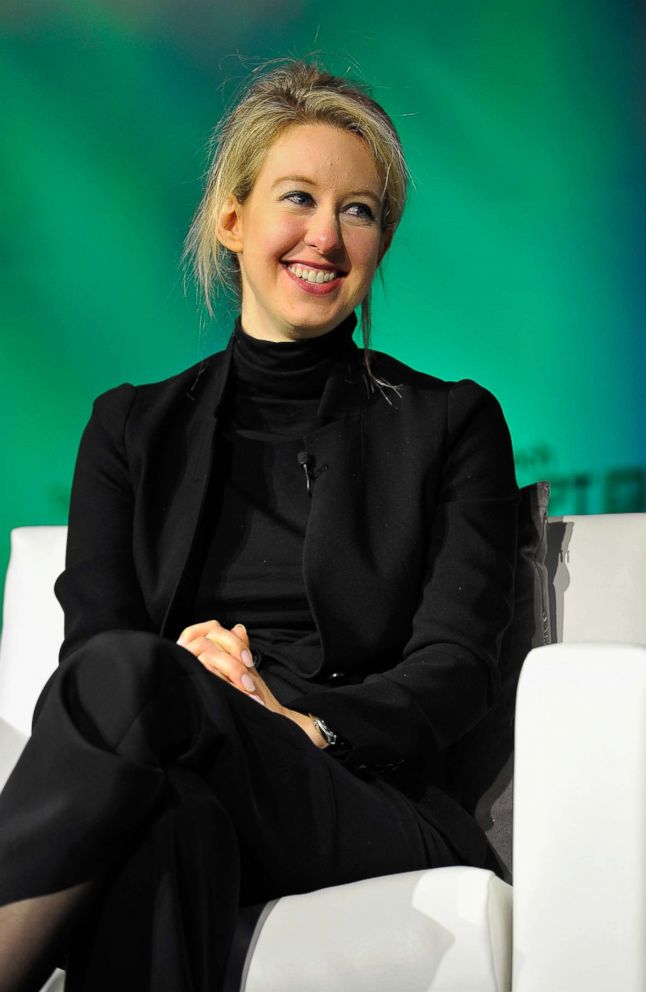
Cheung began working at the company as a lab associate in October 2013 and said things started out positive.
"The culture initially was really a lot of enthusiastic people," she said. "[But] it was sort of a honeymoon period for the first couple months and then things started to unravel where you realize you were working a lot and priorities were always shifting but things didn't quite make sense."
Cheung says it wasn't uncommon to be tirelessly working on a project and then suddenly it wouldn't matter anymore without an explanation. Deadlines and expectations were in constant flux.
But that wasn't the only strange thing that Cheung said she noticed -- she also saw a culture of extreme secrecy that new employees were told about from the start.
"It was just sort of instilled in us in our onboarding. We need to keep certain things secret. You're not allowed to talk to friends and family about what's going on here," Cheung said. "They would barricade certain portions of the lab so you couldn't see."
According to Cheung, Theranos was a chaotic environment. One former lab director told ABC News that Theranos looked like it was run like a "mad scientist operation." This director said there were beakers and chemicals scattered across the two labs at the company's Palo Alto headquarters. There was the CLIA lab, which processed patient samples, and a second lab, which did research and development.
By 2013, the company was about 10 years old, but some former employees said it still felt like a startup. Senior software engineer Michael Craig said there were a lot of frustrations among the Theranos ranks.
"People heard a lot of complaints by the project managers about having to change directions constantly, having everybody all in on this and then [being told], 'No, no, everyone needs to be on this,'" Craig said. "It felt like it was just being mismanaged."
But Cheung said speaking up wasn't really an option.
"People were very scared of upsetting Elizabeth Holmes and upsetting Sunny Balwani," she said. "People were blatantly saying they were scared of losing their jobs ... when things would go wrong, everyone was looking to point to someone to blame."
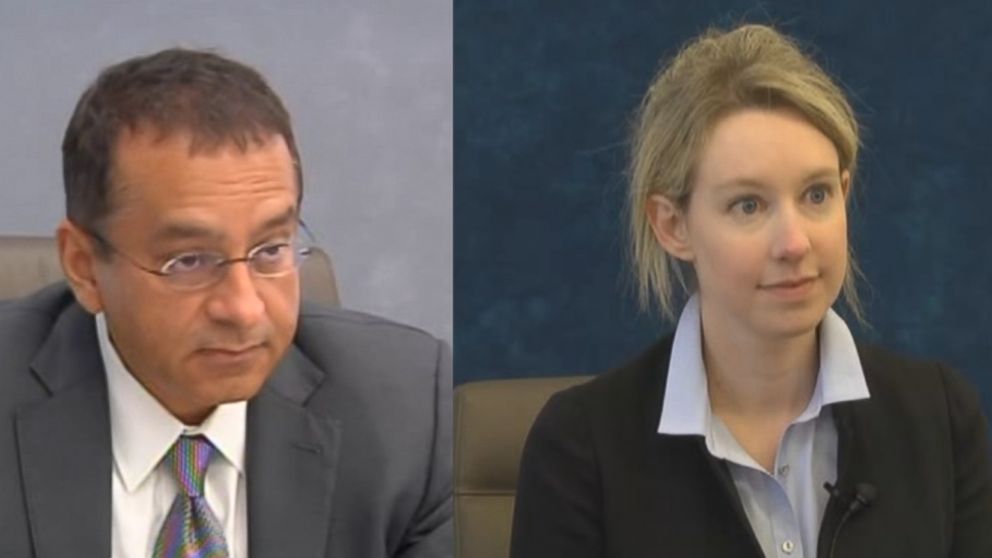
But Cheung, who was working in the CLIA lab, became even more disheartened when she was running routine quality control on Theranos devices and realized something was off.
Quality control tests are done to ensure a device is operating properly and giving accurate results.
"Essentially you have a known quantity of medical sample ... and you know that based on previous machines that you've used, and you run it first [through the device] to see if it clears and it passes," she said.
But, according to Cheung, the Theranos devices "kept failing."
"I kept running it over and over and over and how it was handled totally blew me away," she said. "Essentially how it got resolved is they took out data points ... and said, 'Oh well, this is the best 2 out of 6 the way we average things.'"
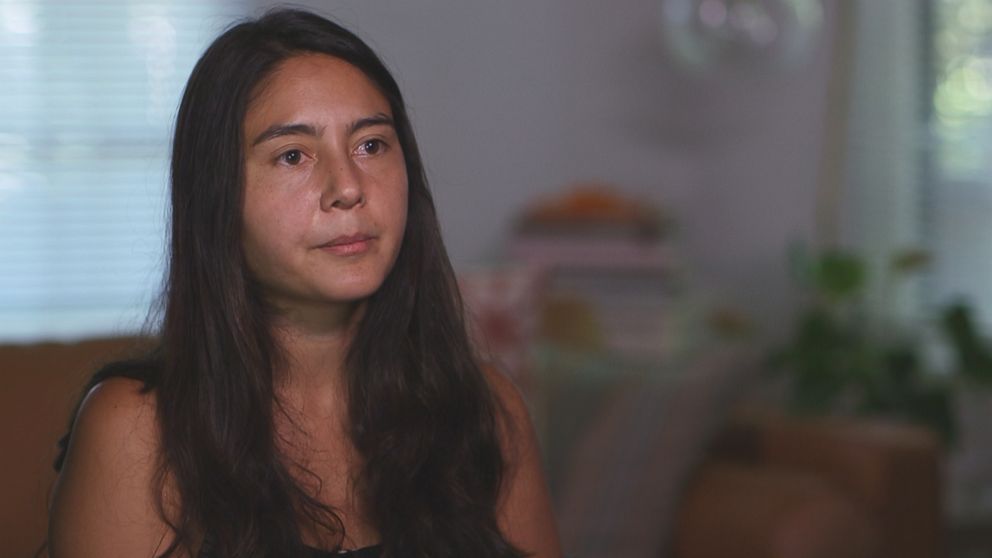
According to Cheung, Theranos was cherry-picking the data to make the information appear accurate.
"It would never be appropriate for someone to do that kind of quality control," said Dr. Stephen Master, a pathologist who interviewed Holmes on stage in 2016 at the American Association for Clinical Chemistry's Annual Scientific Meeting, told Jarvis in "The Dropout."
"If you cherry-pick the data and only put the quality controls that look like they fit so that you can just keep going without actually doing anything to fix the fundamental problem, then you are ... not doing quality control in the correct way," Master added.
Cheung says she raised these issues directly with Ramesh "Sunny" Balwani, Holmes' partner and Theranos' then-president and COO who oversaw lab operations. But rather than address the issues, Cheung said Balwani became enraged.
"He had asked me, 'So how do you like working for this company?'" Cheung said. "And I said, 'I really enjoy working for this company, but there are a lot of problems. We're having a lot of issues with our quality controls.'"
"And then he just sort of lost it at that point," she continued. "He said, 'What makes you think that we have problems? What was your training in statistics? ... I'm tired of people coming in here and starting fires where there are no fires and sort of thinking that there are problems when there are no problems.'"
What really unsettled Cheung was the fact Theranos was running these tests on real people. According to Cheung, the blood-test results were coming up potentially incorrect about a third of the time on the Theranos devices, and yet patients, unaware of this, were using the information to make medical decisions.
"We could have given all these different excuses, but the problems weren't being fixed," she said. "Yet ... we kept continuously processing patients."
Cheung wasn't the only Theranos employee who had noticed issues. Just before she started, a new employee named Tyler Shultz, who had family ties to Holmes, had joined the company.
"I met Elizabeth in my grandfather's living room on Stanford's campus ... that was fall 2011," Tyler Shultz told attorneys during a 2017 deposition, obtained by ABC News, he gave for a lawsuit Theranos investors brought against the company.
Shultz is the grandson of then-Theranos board member, George Shultz, a former secretary of state.
Tyler Shultz, who's about six years younger than Holmes, said in his deposition, featured in "The Dropout" podcast, that he remembered the first time he met her back when he was a junior at Stanford.
"I was in love with her vision," Shultz said in his deposition. "I thought she was brilliant. I was totally sold on the idea of changing the way blood testing was done ... and I really wanted to work at Theranos."
Shultz's grandfather was close to Holmes. He introduced her to many of the influential men who eventually became Theranos board members, including former Secretary of State Henry Kissinger and retired Gen. James Mattis.
"She would go have lunches or dinners with my grandfather all the time and I would be there for some of them," Shultz said in his deposition.
The former secretary of state and Holmes met through a mutual friend at the Hoover Institution.
"As soon as she started talking I did a double take," George Shultz said of Holmes during an interview with Holmes at the Stanford Institute for Economic Policy Research.
As George Shultz later told it, he could see the momentous potential for her technology right away.
"We think there is going to be a revolution in preventive medicine ... and that is going to have a big impact on quality of life and on the cost of the healthcare system," Shultz said during the SIEPR interview.
He and Holmes connected regularly. In the first year of knowing each other, George Shultz said they met almost 30 times. Holmes became a close family friend, sometimes spending Thanksgiving and other holidays with the family.
"Every time she came to our family Christmas dinners or other family events like that, she would always talk about how Theranos was more accurate than existing methods," Tyler Shultz said in his deposition.
After a summer internship at Theranos, Tyler Shultz was eager to work there full time. He started the day after Theranos opened its first Wellness Center at a Walgreens in Palo Alto.
Just like Cheung, Shultz started out bright-eyed and enthusiastic about Theranos' vision. But on his very first day, he said Holmes fired the head of assay development on the spot after asking too many questions.
"That kind of set the tone for the entire scientific community within Theranos, where working smart was not valued but working hard was," Shultz said in his deposition.
The longer he was at Theranos, the more Shultz realized that the impressive Theranos mission Holmes had presented to his family wasn't matching up with reality. He especially didn't like what Holmes was pedaling to his then-93-year-old grandfather.
"My grandfather would go get a Theranos test done and he would have a needle in his arm and there'd be some excuse why there needed to be a venous draw for him but for everyone else it's a finger prick and he continued to buy into that," Tyler Shultz said in his deposition.
Shultz said he told his grandfather that the majority of Theranos tests weren't run on Theranos devices and that the devices couldn't run hundreds of tests on a single drop of blood. But he said his grandfather didn't believe him.
"He said that Elizabeth told him that the only reason they have third-party devices is to validate their own devices but that no blood tests were run on those devices," Tyler Shultz said in his deposition. "While I was working there we only ran seven tests on the Theranos devices. And she also made it sound like the devices could simultaneously run multiple tests, but in reality, each device was calibrated to run one thing at a time."
Shultz said Holmes would manipulate his grandfather and use their personal relationship "to a business advantage" and that Holmes "would just feed him ... things that were completely factually not true."
During Shultz's deposition, he ran through what he said was a long list of problems he witnessed with the Theranos devices. He said that the devices had everything from mechanical errors to parts breaking off or not working properly to temperature issues to experiment contamination.
"Oftentimes the doors wouldn't close so you would have to tape it shut and as far as I knew we never tested if taping it shut changed the result," Shultz said. "The barcode readers often didn't work so I usually would put the barcode on scissors and I would stick the scissors into the device so it would scan the barcode and then I would quickly put the cartridge in."
Shultz said that most of his colleagues were aware of the vast array of problems.
"People would pretty much joke about how awful they were," Shultz said in his deposition. "I went out with some of my housemates and I saw some of the project managers there and one of them was hitting on one of my friends ... and he was saying that he was clean, STD-free and we were making jokes that he didn't actually know because he was tested with a Theranos device."
But the gravity of these issues weighed on the employees. Shultz said customers were getting inaccurate results and potentially making dangerous decisions about their health.
"I think that at the end of the day, everyone was concerned that we were not giving people the right results," Shultz said during his deposition.
At one point, an attorney suing Theranos on behalf of investors asked Shultz during his deposition, "To your knowledge, did Ms. Holmes know, at the time, that Theranos could not do all those tests?"
"Yeah, she knew," Shultz replied.
Shultz and Cheung said they discussed the problems they encountered and Cheung said she started keeping track of issues as they came up.
"She [Cheung] was really concerned with quality control failures ... that was happening really frequently. I know she was keeping track of a really precise tally," Shultz said in his deposition.
"I would put up error reporting sheets by the machines and it would be taken down. People didn't want to actually know the number of times that we were having issues because they were starting to realize we were having them so frequently," Cheung told Jarvis.
Shultz said in his deposition that Cheung told him a manager cautioned her against reporting the issues.
"She told me that he told her, 'Don't speak up, if you speak up, then you're on their radar. You don't want to be on their radar,'" Shultz said in his deposition.
Shultz said that employees believed it wasn't acceptable to speak up at Theranos. "People knew, 'Don't speak up or you'll get fired," he said in his deposition.
"There was definitely a culture of fear," Shultz continued. "I don't know how it started but it was definitely there."
When Balwani discovered Cheung and Shultz had been communicating about the problems they were encountering, she said he was angry. When she met with him, Cheung said he refused to listen to any of her concerns.
"The reception that I got was basically, 'You need to sit down and keep your mouth shut. You don't know what you're talking about. You need to do the job that I hired you for which was process patient samples,'" Cheung told Jarvis.
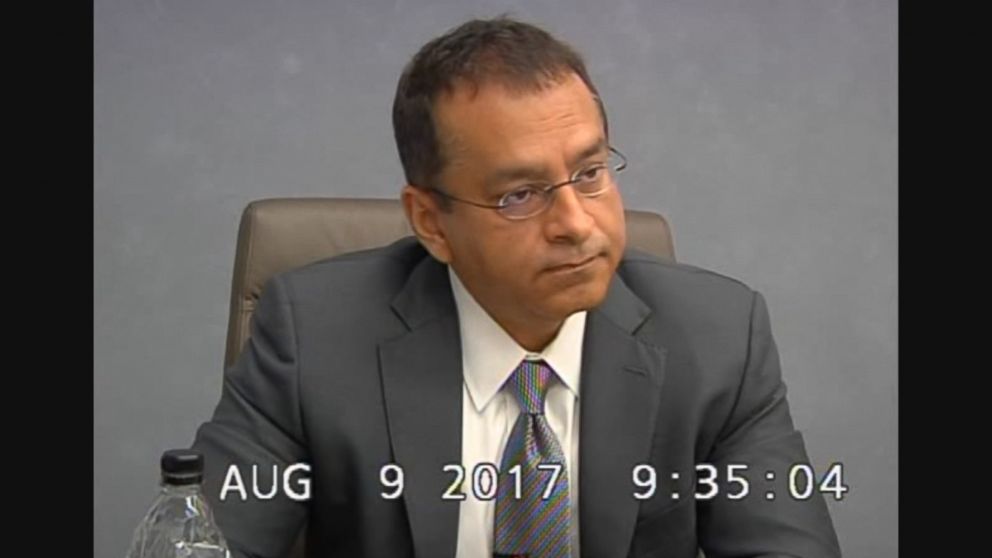
Cheung said this experience solidified her feelings about Theranos.
"That was when I was like, this is not an environment, this is not a culture, where they really care about what consequences this might have on patients," she said.
While Cheung felt her concerns were falling on deaf ears, Shultz knew he was in a unique position given his family connections. But he wanted to be absolutely certain his concerns were valid before raising them with Holmes. So he reached out to state regulators using an alias.
"I didn't even say where I worked initially," Shultz said in his deposition. "I wanted to get the information from someone who understood whether what we were doing was OK and I wanted it to be not from somebody inside of Theranos but someone who didn't have skin in the game essentially who knew what they were talking about."
Shultz described the issues that he said he, Cheung and other employees had seen at Theranos. He said that the regulators told him he was describing a form of proficiency testing and advised him to file a complaint, which he then did anonymously.
He also said he flagged the issues to Holmes in an email after attempting to meet with her multiple times.
"I actually liked Elizabeth and I thought we could make changes, but I knew it would be a hard conversation to have," Shultz said in his deposition.
Shultz sent a pages-long email to Holmes, obtained by ABC News and featured on "The Dropout," detailing a number of issues. Holmes later responded with "Tyler, these are very, very serious comments and allegations that you're making." She went on to say she'd "have the teams go through this line by line, so it will take some time before I get back to you on this."
But rather than a follow-up from Holmes, Shultz received a scathing response from Balwani.
"Her relationship with my grandfather was still really important to her so it made more sense to have Sunny respond," Shultz said in his deposition.
In a pages-long response obtained by ABC News, Balwani wrote: "That reckless comment and accusation about the integrity of our company, its leadership and its core team members based on absolute ignorance is so insulting to me that had any other person made these statements, we would have held them accountable in the strongest way. The only reason I have taken so much time away from work to address this personally is because you are Mr.Shultz's grandson ... the only email on this topic I want to see from you going forward is an apology ..."
Rather than an apology, Shultz gave his two weeks' notice. He said in his deposition that Theranos instead asked him to leave immediately.
Before he left the Theranos building, Shultz said he waited around in a conference room to make himself available in case Holmes wanted to meet. He was told security would come to escort him out but they never did and, eventually, he left on his own. Then he broke the news to his grandfather.
"He said that Elizabeth told him that I had quit in a really dramatic and unprofessional way and inappropriate way," Shultz said in his deposition. "He said they're trying to convince me that you're stupid but they can't do that. They can try to convince me that you're wrong, and in this case, I do believe you're wrong."
Later that night, Shultz went to his grandfather's for dinner and invited Cheung, who was still at the company but having trouble getting someone to pay attention to the concerns she raised over the blood tests' accuracy.
"Erika was very frustrated with how this was handled as well because she had similar concerns," Shultz said in his deposition. "She was trying to find a voice, and I said I don't know if anything would happen, but I know my grandfather would at least listen to you."
Over dinner Cheung and Shultz made their case to George Shultz, reiterating their concerns about Theranos' devices. Cheung shared what she said she saw happening with real patient samples but George Shultz insisted that Theranos didn't have problems.
"My grandfather said that the Theranos device was currently being used in medevac helicopters. ... He also said they were being used in operating rooms," Tyler Shultz said in his deposition. "I remember Erika and I saying that there is no way that could have been true because the devices were barely working in the walls of Theranos."
"He said that highly qualified people are telling him that Theranos is the real deal and it is going to revolutionize medicine," Shultz added.
Shultz and Cheung left the dinner feeling defeated. Cheung quit the next day, seven months after she'd started. But what they didn't know at the time was that someone outside of Theranos was taking what may have been the first critical look at the company.
"I was just passing by its headquarters, practically, being of Greek origin Theranos sounded like a Greek term that was very weird. The terms that come to mind are 'tyrannos,' which is a tyrant, and 'thanatos,' which is death. So I said, 'Why should a company want to have such a name?'" said Dr. John Ioannidis, a professor of medicine at Stanford University.
Ioannidis was intrigued and started looking into the company. With all of the claims Theranos was making in the medical industry, Ioannidis said he started searching for published peer-reviewed papers about the company and its technology. He said he "practically found nothing."
"The very basic premise of science is that you need to have scientific documentation of the evidence that supports your claim," he said. "And if you have extraordinary claims or extravagant claims like in the case of Theranos, that they were promising that they have something that would revolutionize the entire health care system, it would be a completely disruptive type of innovation that the world has not seen before, you ask for even more evidence. You're not happy just to see a few papers with very questionable evidence and lots of question marks."
Ioannidis said that he would have expected there to be at least tens of thousands of papers about Theranos based on what the company was claiming. In early 2015, he published a paper in The Journal of the American Medical Association. It was the first time anyone had publicly questioned the $1 billion startup.
"I just presented my experience that this is a startup that is promising to disrupt the entire medical care world ... and the CEO is highly respected and everybody thinks that this is the way to go. But our scientific literature doesn't include any evidence," Ioannidis said.
Ioannidis said he promptly got a call from Theranos' general counsel.
"I think that they were trying to win me over to their side," Ioannidis said.
Ioannidis said the conversation ended with plans to keep in touch and for him to meet with Holmes but that Theranos never followed up.
Meanwhile, across the country in New York, John Carreyrou, a Wall Street Journal investigative reporter, was getting interested in Theranos. Carreyrou is a dogged investigative journalist with a 20-year track record of breaking a variety of stories about financial malfeasance.
Carreyrou read a New Yorker profile of Holmes in December 2014 and said a few red flags.
"One of the first things that struck me as off in this story was this notion that she had dropped out of Stanford with just two semesters of chemical engineering classes under her belt and gone on to pioneer a groundbreaking new medical science," Carreyrou told Jarvis on "The Dropout." "To really add value in medicine you have to have the formal training ... there's a reason that most Nobel winners in medicine are in their 60s when they win the Nobel."
He started digging into the story and discovered that finding sources to talk on the record was a challenge.
"The threat of litigation was always in the air when you worked at Theranos," he told Jarvis. "Employees knew it was not an empty threat because Elizabeth had sued former employees in the early years of the company. ... They also knew that starting in 2011 the outside counsel for Theranos was David Boies."
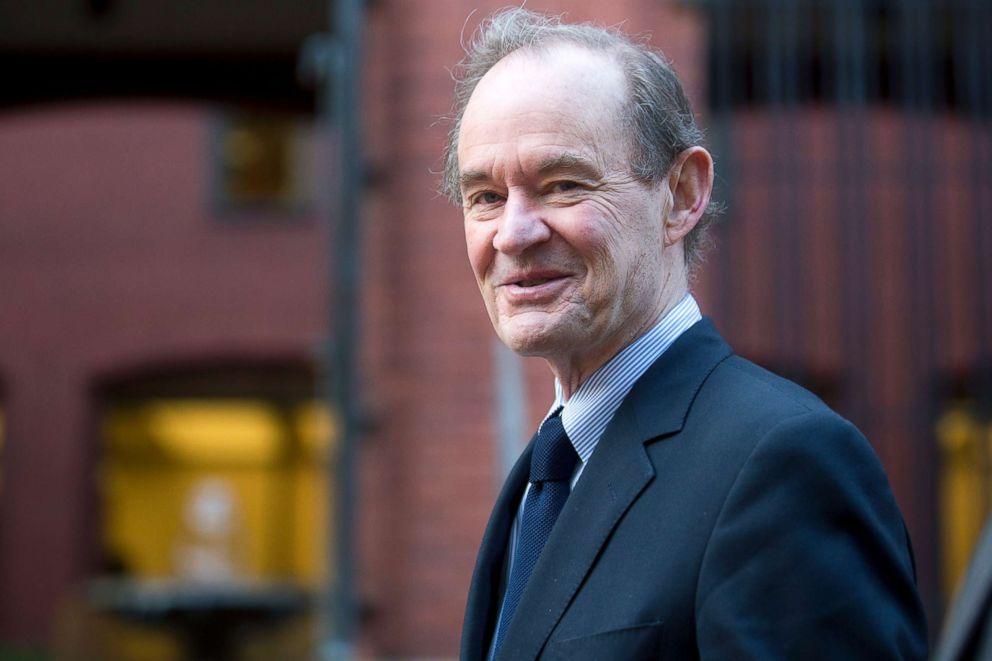
Boies is one of the leading trial attorneys of his time. He represented Al Gore in the presidential recount of 2000. He later helped pioneer the legalization of gay marriage, but he's also known as an intimidating corporate litigator and was the longtime attorney of Harvey Weinstein.
Carreyrou said he discovered Boies was the "scarecrow" for Theranos employees.
"They thought if they expressed their misgivings, either internally or after they left to a regulator, or to a reporter, that it would be David Boies and his law firm that would be coming after them," he said.
Employees like Tyler Shultz knew the risks of talking publicly.
"I noticed he [Tyler Shultz] checked out my profile on LinkedIn," Carreyrou said. "He must have heard from other employees that I was beginning to poke around and make calls. So I in-mailed him."
Shultz ignored the message for weeks, afraid Theranos would take legal action if he spoke to Carreyrou. But Shultz said he eventually became curious about how much information Carreyrou already had.
Carreyrou said he was about to give up hope that Shultz would respond to his message when one day he got a phone call.
"I pick up the phone and it is Tyler and he was terrified as well and was calling me from a burner phone because he didn't want our communications to be traced," Carreyrou said.
Shultz said after that first conversation with Carreyrou he "got sucked in."
"John had a lot of information," Shultz said in his deposition. "He had the right track record. So I felt like giving him more information would go towards correcting a lot of the problems I saw while there, which would ultimately go towards saving some patients from getting incorrect medical results."
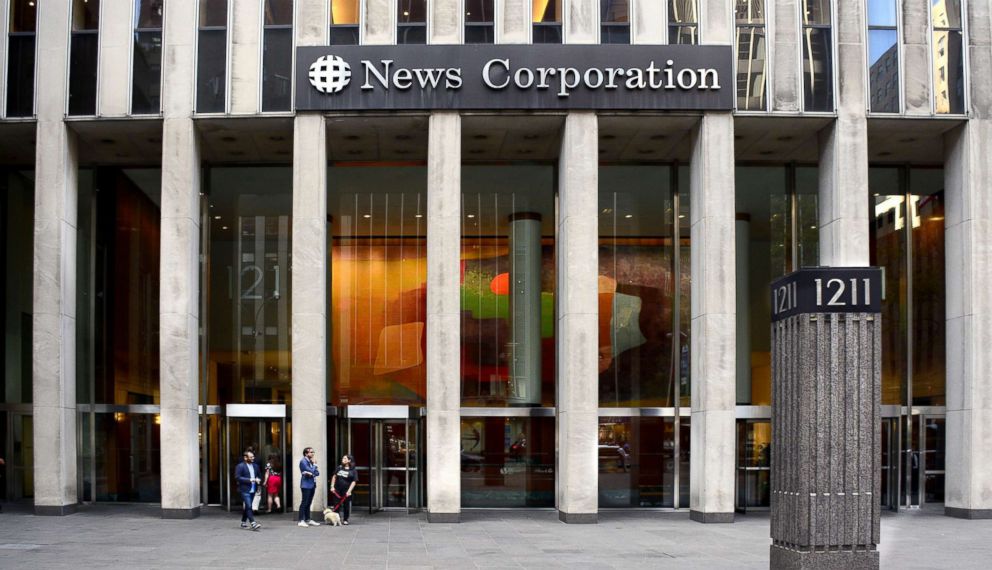
Shultz became an important source for Carreyrou, but it wasn't long before Theranos' legal team sprung into action. In June 2015, Carreyrou was preparing to publish his first article about the company when attorney David Boies and his team came in for what Carreyrou described as a marathon, five-hour meeting at The Wall Street Journal.
"Their demeanor was very aggressive," Carreyrou said. "They had proceeded to tell us ... that I had misappropriated Theranos trade secrets and that I needed to destroy them or return them immediately."
He said he and his WSJ colleagues tried to keep things cordial as they went through a prepared list of 80 questions they'd sent to Theranos in advance of the meeting.
"The basic question was, 'Do you use commercial machines made by third parties for some if not most of your tests?'" Carreyrou said. "And if the answer was 'Yes,' then they had been lying to everyone."
Carreyrou said he and his colleagues also inquired about how many tests Theranos could actually run on its own devices and whether the tests were reliable.
"When I started asking those questions, they wouldn't answer, invoking trade secrets," Carreyrou said.
Over the course of the meeting, Carreyrou said Theranos' legal team never answered their questions directly.
"It was frustrating," Carreyrou said. "The stonewalling was also a sign that I was on the right track. So I came out of that five-hour meeting feeling like we were onto something big and I was just going to redouble my efforts."
But Theranos redoubled its efforts too. Carreyrou said he received multiple threatening letters from Boies and Theranos after that meeting, including one letter that claimed he'd stolen Theranos trade secrets.
"The threat is very explicit that Theranos is going to sue if we proceed any further with this story," Carreyrou said.
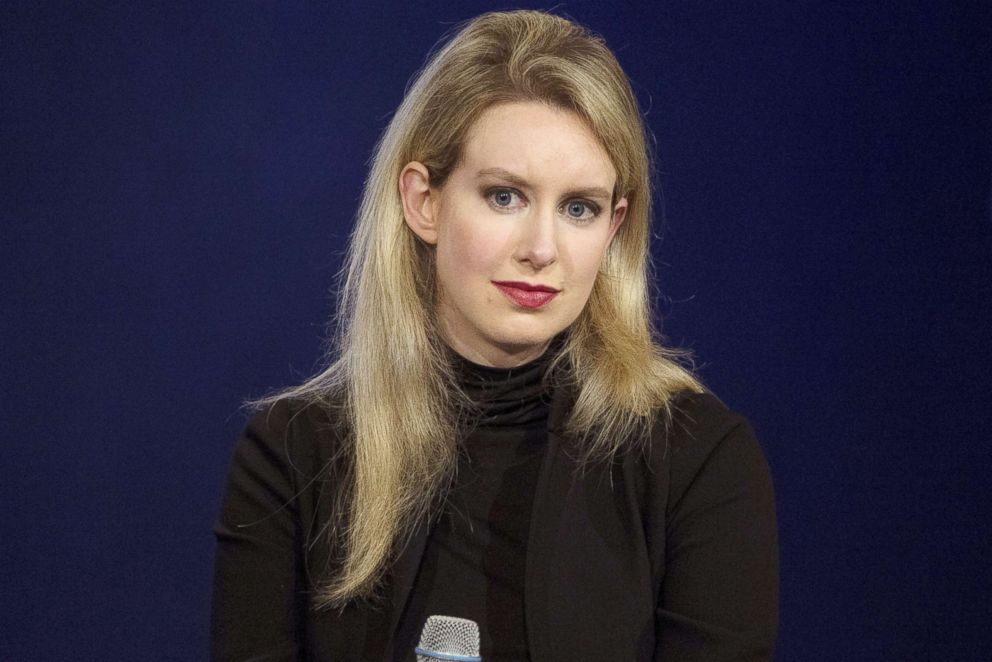
Holmes was also applying her own pressure. In July 2015, she published an op-ed in The Wall Street Journal in which she wrote that Theranos was "ushering in a new era of preventative care." In the op-ed, she argued that "all lab tests should undergo review by the Food and Drug Administration." But, in reality, only a single Theranos test, one for herpes, actually was approved by the FDA.
Nevertheless, Carreyrou pushed forward with his first story that started to peel back the layers on Theranos.
"I think it was that day [the op-ed came out] pretty much I had already filed my story to my editor and I went to his office and I said, I think we need to speed up the process here because she's not only continuing to give interviews and use our own newspaper as her mouthpiece, but we knew that she was putting all this pressure on some of my confidential sources and I felt very concerned," Carreyrou said.
Carreyrou's anonymous sources for his first piece, Shultz and Cheung, said they were also fielding legal threats.
"They had someone sit outside my work at my new job ... and it scared my own co-workers," Cheung said. "They were curious. Why has this guy just been sitting outside our lab for such a long time?"
Cheung said co-workers waited to walk her to her car, nervous about the man lingering outside. As she left the office, she said a man walked out of an SUV and handed her a threatening letter signed by David Boies.
The letter, obtained by ABC News, said Theranos had reason to believe Cheung was disclosing "trade secrets" and threatened to sue if she didn't stop.
"The letter that they had addressed ... was an address no one knew I was living at, it was a temporary home, so it freaked me out, like are they following me? How did they figure out where I lived because even my own mother had not known this address," she said.
Cheung decided to consult a lawyer, who suggested she report what she witnessed at Theranos to federal health regulators.
"I had no idea that you could do that," Cheung said. "Again, [it was my] first job out of college. You don't think I'm going to have to go to a regulatory agency and tell them that this company is potentially endangering patients. That was never something I expected to sign up for but it really started to eat me up inside and that's what lead me to file the complaint."
In his deposition, Tyler Shultz claimed that Theranos also had a private investigator follow him after he left the company.
Shultz had already been facing pressure from Theranos and his grandfather, and said when his father discovered he had been speaking to a reporter, he was furious.
"He [my father] was more angry with me than I had ever seen him in my life," Shultz said in his deposition. "He was like, 'They know you did it. You know how aggressive they are. Why would you do this? They are going to ruin your life basically.'"
Shultz then called his grandfather, who said Theranos had proof Shultz had been speaking to a reporter from The Wall Street Journal. Shultz denied this to his grandfather at first.
"I said, 'I don't know why they would think that,'" Shultz said. "And he [my grandfather] said, 'Well, in any case, there is a one-page confidentiality agreement, and if you sign it, it will make everything go away.'"
Shultz said during his deposition that his grandfather asked if he would meet with Theranos' lawyers the next morning at his house and sign the agreement. Shultz agreed but asked to meet with his grandfather first, without lawyers.
That evening, Shultz stopped by his grandfather's house on Stanford's campus. He said he wanted to reiterate his concerns about the company, but George Shultz continued to insist Theranos had undeniable proof his grandson was leaking information.
"He is telling me that there are complete sentences that came from my email ... so I am saying, there is no way that could possibly be true," Tyler Shultz said in his deposition. "And again, he says, 'Whatever the case may be, will you just sign this one-page document to make everything go away? And I said yeah, I will definitely sign that."
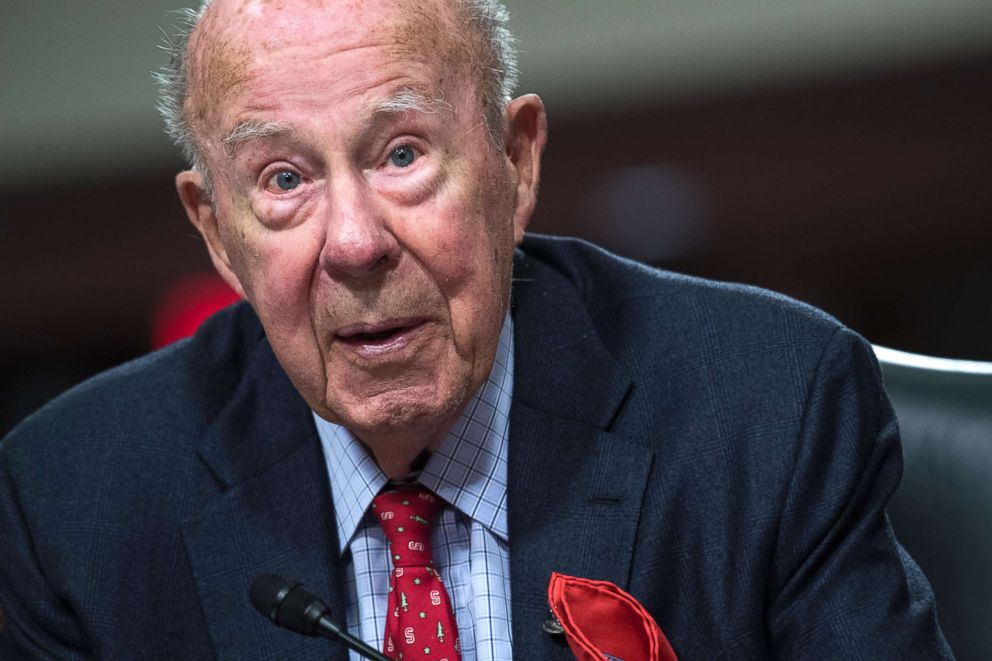
But things took an unexpected turn when George Shultz revealed that there were actually two Theranos lawyers upstairs in the house waiting.
"There just happened to be two lawyers hidden somewhere in the house?" said a lawyer suing Theranos on behalf of investors, to Tyler Shultz during his deposition.
"Yeah," Shultz replied.
Attorney: "What was your reaction to learning that?"
Shultz: "I was surprised. Yeah. Totally surprised ... they come down and they do not come down with a one-page confidentiality agreement, they come down with a notice to appear in court two mornings later, a letter signed by David Boies."
At this point, Shultz said his step-grandmother became uncomfortable, thinking her grandson was being ambushed, and George Shultz escorted the lawyers away. But that was just the beginning of Shultz's legal battle with Theranos.
"My grandfather would say my career would be ruined if this article comes out," Shultz said in his deposition.
As all of this was happening, former employees said there was chaos back at Theranos. On Aug. 25, 2015, agents from the Food and Drug Administration descended upon Theranos for a surprise inspection of its labs.
"I definitely think that was a very unexpected surprise for them and definitely not something good, to put it lightly," said senior software engineer Michael Craig, who was in the building during the FDA's visit. "They came in through the door and someone from the legal department was notified and came out and ... ushered them into one of the concourse conference rooms."
Some former employees said it was a heart-pounding moment when the agents entered the building. Holmes seemed to take the whole thing in stride.
"One of my friends from there said to me, 'You know ,if you really want to believe something you will do all the necessary gymnastics you need to do in order to believe it,'" Craig said. "And I kind of feel that's completely apropos of Elizabeth Holmes."
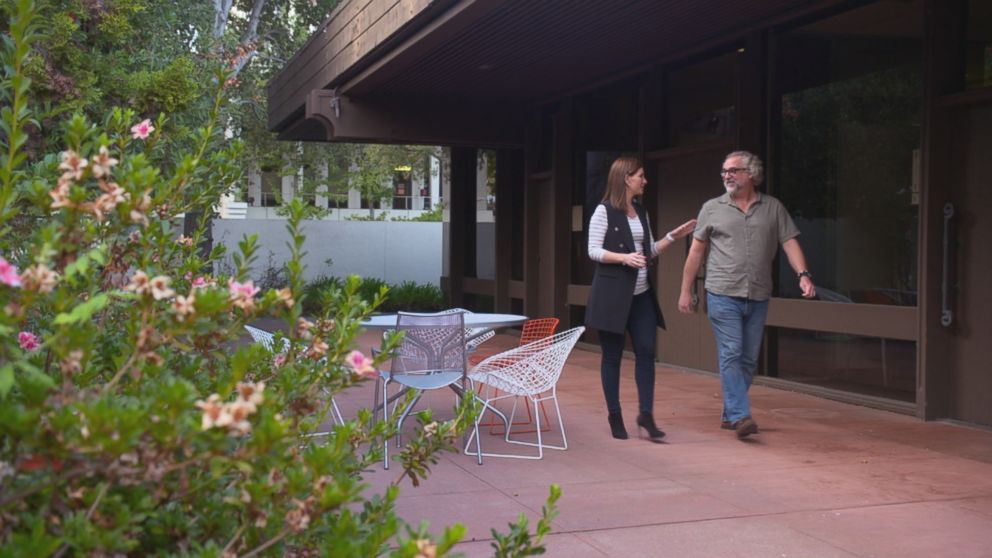
As a result of the nearly two-week-long inspection, the FDA found 14 compliance issues. Theranos said it would resolve most of them in seven days. Whether the company actually did, the FDA won't confirm.
But while Theranos was dealing with the FDA, Tyler Shultz was still dealing with Theranos. He hired lawyers to fight it out with Theranos' attorneys. He said it cost his parents close to half a million dollars in legal fees. But he kept talking to Carreyrou despite the risks to his finances, his family relationships and his career.
"In the end, I am able to publish in large part thanks to Tyler," Carreyrou told Jarvis on "The Dropout."
On Oct. 15, 2015, The Wall Street Journal ran the first of many explosive Theranos articles, with Carreyrou reporting that the company wasn't using its own "technology for all the tests it offers." Instead, according to the article, Theranos was using traditional machines bought from companies like Siemens to run the majority of its tests.
"Once we published the story, it was pretty much bulletproof. It withstood the counterattacks then regulators acted and eventually everything that we'd written was proven right," Carreyrou said.
Back at Theranos, former employees said Holmes called an all-hands meeting. Employees crowded into the cafeteria, packing into booths, leaning against whatever they could. Michael Craig said Holmes and Balwani were standing in the center of the room with a microphone and speakers. They told employees they were under attack. Carreyrou was enemy No. 1, they said and he was doing the bidding of big corporations.
"She definitely did that thing where you unite people in common opposition against someone else, which is, you know, probably ... in 'The Art of War,'" Craig said.
A a chant broke out.
"'**** you Carreyrou' is what we chanted," Craig said. "I joined in a kind of like tongue-in-cheek."
At that moment, Craig said he still believed in Theranos and Holmes.
"When you're really committed to something and you really want to believe something, you'll believe you'll do whatever you need to do to believe it," he told Jarvis.
Some Theranos employees even created a Space Invaders video game with Carreyrou as the villain and nanotainers, the tiny vials that Theranos used to collect blood, as the bullets.
With the support of many employees, Holmes then appeared on CNBC's "Mad Money" with Jim Cramer in August 2015 to speak out against The Wall Street Journal and defend her company.
"This is what happens when you work to change things and first they think you're crazy, then they fight you, and then all of the sudden you change the world," Holmes said on the show.
But soon, Holmes had bigger problems than bad publicity. Her next battle wasn't in the court of public opinion, it was in the court of law.
Holmes and her counsel did not respond to our repeated requests for comment. Sunny Balwani's attorney Jeff Coopersmith told ABC News that if he were to give Balwani a grade for his job at Theranos it would be "an A+ for dedication and effort."
"Obviously when we look at this after the after the fact it has been a business failure. ... And you know Mr. Balwani is very sorry about that ... but that is not fraud," Coopersmith added.
In a statement to ABC News regarding this report, George Shultz said: "The members of our family work to be loyal and supportive to one another and to the best of America's values. Most have inspired others to listen to their better angels; and some have shown tremendous courage and integrity when faced with difficult decisions or situations. Tyler's handling of the troubling practices he identified at Theranos is an example. He did not shrink from what he saw as his responsibility to the truth and patient safety, even when he felt personally threatened and believed that I had placed allegiance to the company over allegiance to higher values and our family. I have learned -- from my experiences beginning in World War II, in private industry, and in the various public service positions I have been privileged to fill -- that the people in the field are closest to the issues and are the best sources of wisdom whenever a problem arises. That was certainly the case here. Tyler navigated a very complex situation in ways that made me proud. He has been an example for the entire family, for which all of us are grateful. I want to recognize and congratulate Tyler for his great moral character."
"The Dropout" is a six-part series on the rise and fall of former Silicon Valley darling Elizabeth Holmes and her company Theranos. It is written and produced by Jarvis, Taylor Dunn and Victoria Thompson. Listen to "The Dropout" for free on Apple Podcasts, Google Podcasts, iHeartRadio, Spotify, Stitcher, TuneIn, the ABC News app, or your favorite podcast player.
